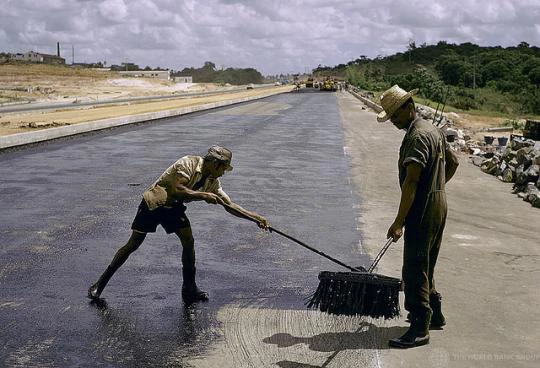
Thomas Sennett / World Bank
Unfortunately, the country’s performance remains poor compared to many other countries with similar socioeconomic characteristics. In fact, Brazil’s death toll is currently between 23 and 27 deaths per 100,000 inhabitants, which is more than twice the targets of its own national strategy for 2014 and far above the best performing countries in the world, such as Sweden (three deaths per 100,000). Why?
A variety of factors contribute to this situation, from lagging infrastructure quality to the overall organization of the transport sector, characterized by insufficient integration and coordination between jurisdictions as well as across sectors. This is further epitomized by the four distinct national programs mentioned at the beginning of this post.
In mid-2014, Brazil was selected by the UN to organize the mid-term ministerial review meeting of the UN Decade of Action for Road Safety 2011-2020, which will take place in November 2015. A unit within the Prime Minister’s Cabinet ( Casa Civil) was appointed to coordinate the national road safety program at the federal level. Soon, the Brazilian government formalized a partnership with the World Bank to advise on a short-term action plan that features three main pillars: infrastructure assessment, institutional organization, and management evaluation and knowledge sharing.
Working together, we quickly mobilized resources from donors (including Bloomberg Philanthropies under the Global Road Safety Facility umbrella). As a result, we prepared a pilot iRAP Study of the Federal roads starting in early December, a national capacity assessment that started in January and a sequence of knowledge sharing and dissemination events.
The first of these dissemination events was an international seminar organized in Brasilia in November 2014. This seminar, which was attended by more than 200 stakeholders from across the country, was an opportunity to share Brazilian experiences, as well as successful road safety examples from countries such as Spain, Australia and New Zealand. Following this initial event, a high-level representative from the Ministry of Health (which is in charge of organizing the Ministerial Mid-Term Review Meeting), was invited to present Brazil’s experience to the World Bank-hosted Transforming Transportation forum, which took place in mid-January in Washington, DC.
These initiatives will support Brazil’s efforts to prepare for November’s UN Road Safety meeting, as well as laying the groundwork for the country’s own sustainable efforts. We all hope that the commitment triggered by this exceptional year for road safety will translate not only into successful policies in Brazil, but also successful initiatives that will help pave the way for Latin America and the rest of the developing world.



Join the Conversation